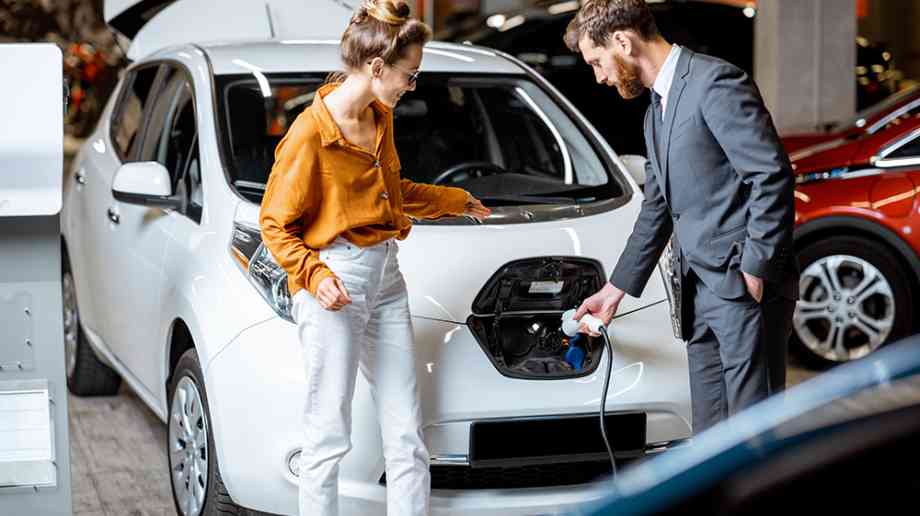
Vehicle purchasing
Crown Commercial Service’s (CCS) Purchase of Standard and Specialist Vehicles framework enables central government and the wider public sector to buy standard, converted and specialist vehicles
Agreement RM6244 is running from 29 November 2022 to 28 November 2026, with 10 lots and 77 suppliers.
Scope
The framework offers access to vehicles of all fuel types including electric, hybrid and hydrogen and a complete range of vehicle sizes and types including cars, vans and 4x4s. Light, medium and heavy commercial vehicles including refuse collection and waste management are included, as are minibuses, buses and coaches. The framework also offers mobile trailers and mobile units for health and other sectors and blue light emergency vehicles of all types (such as operational cars, police carrier units, dog vans, command and control units and lightweight fire fighting vehicles).
Specialist bespoke vehicles are also available, as are conversion services including specification design, body build, testing and associated maintenance.
Lots
The agreement is spread across 10 different lots and includes 77 suppliers. Lot 1: Purchase of Passenger Cars (including 4x4 variants) enables buyers to purchase cars including saloon, hatchback, estate, coupe, convertible, sports utility vehicles, 4x4s and multi-purpose vehicles.
Lot 2: Purchase of Light and Medium Commercial Vehicles up to 7.5T covers the purchase of light and medium commercial vehicles up to 7.5 tonnes and provides a range of commercial vehicle types including: vans; chassis cab; combi; crew; panel; tippers; dropside; fridge vans; fridge box; platform cab; and car-derived vans and pickups.
Lot 3 covers the purchase of Medium to Heavy Commercial Vehicles including Chassis and Cabs. Lot 4 includes the purchase of emergency vehicles for blue light services including passenger cars, all-terrain vehicles, motorcycles, scooters and quad bikes, with Lot 5 covering Bluelight Light and Medium Commercial Vehicles up to 7.5T for Emergency Services – this includes emergency vehicles such as vans, car derived vans and pickups.
Lot 6 enables the purchase of refuse collection and waste management vehicles including rear loaders, side loaders and front loaders.
Lot 7 covers minibuses (9 - 17 seats), including accessible and patient transport and Lot 8 is for buses and coaches with more than 17 seats.
Lot 9 is for the purchase of trailers and mobile units, including health screening, events and mobile office.
The final lot is the conversion of bespoke and specialist vehicles and enables the purchase of bespoke and specialist vehicles within the following types/categories: M1 vehicles (Passenger cars); N1 vehicles: (Light goods vehicles up to 3.5 tonnes); N2 vehicles (used for the carriage of goods, from 3.5 tonnes to 12 tonnes); N3 vehicles (used for the carriage of goods, 12 tonnes and above); ambulances, including accident and emergency double crew and other stretcher bearing vehicles; bluelight conversions; and other services such as: design, consultancy, livery, electrical, communications, welfare vehicles, heating, cooling, ventilation, utilities and drainage.
Buying
Purchasing through the framework is possible through direct award or further competition.
Direct award works differently depending on the lot. For Lots 1 and 2, buyers can use the Fleet Portal to compare vehicle specifications and indicative pricing and then select the vehicle which is most appropriate for the organisation. Once the vehicle has been selected, buyers can then contact the chosen supplier to confirm pricing, volume and the supplier’s ordering process. Once ready to order, a direct award can be placed using order forms provided by CCS.
For the remaining lots, to buy a vehicle through direct award, buyers should: contact the relevant suppliers for pricing and technical information, compare their responses, select the vehicle which provides the best value for the organisation, contact the chosen supplier to confirm pricing, volume and the supplier’s ordering process and then place an order.
For more complex needs or a significant volume, buyers can run a further competition to decide which supplier can provide the best value.
In order to run further competition, buyers need to complete further competition documents including invitation to tender, timetable for the competition and specification/statement of requirements. Buyers need to prepare evaluation criteria and invite all identified suppliers to submit a tender in writing. A time limit should be set for submission of tenders and then supplier responses can be evaluated. An order should then be placed with the successful supplier and the other suppliers should be informed of the outcome of the competition.
Benefits
The framework offers several benefits, including access to an online vehicle quotation system (Fleet Portal) which provides technical and pricing information for cars and vans and a full breakdown of costs which will allow you to easily compare vehicles and the use of an average market rate comparator – CCS discounts are approximately 8.1 per cent better than those achieved by the leasing market (at the time of the Agreement going live).
The framework provides a direct award option to make use of the simple order form to simplify the procurement process. Also on offer are separate lots for both standard and specialist vehicles; dedicated blue light lots; and the option to use a local dealership for delivery and after sales service which supports SMEs.
Finally, the framework offers carbon reduction and social value including access to all fuel types including zero and low emissions vehicles. All suppliers have committed to signing up to the National Highways’ Driving for Better Business scheme and all suppliers are developing carbon reduction plans working towards net zero by 2050.


